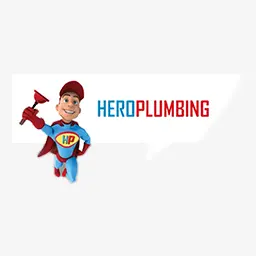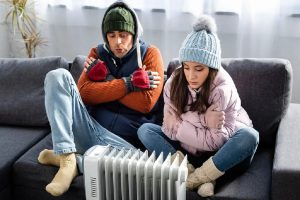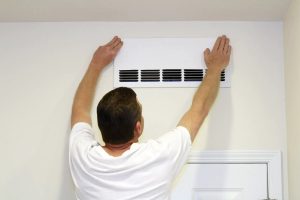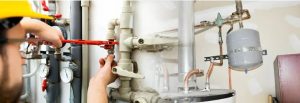Table Of Contents
What Is A Ventless Gas Heater?
Have you heard of ventless gas heaters? Do you know what they are? What is the difference between ventless and vented gas heaters? Ventless gas heaters are heating appliances that do not vent air outside the house during heating. Their operation mechanism involves obtaining oxygen found within the home to fuel the combustion process to produce heat.
Then the heat produced is vented directly back from the unit. Ventless gas heaters do not require outside air exchange making them more efficient than the traditional heating options. Ventless gas heaters have both significant perks and limitations.
Advantages of Ventless Gas Heaters
Since ventless gas heaters do not need outside air exchange, they have become one of Australia’s most efficient heating options. Research has revealed that they operate at about 99% efficiency level. Moreover, natural gas and propane heaters are more economical and cost-effective. Ventless propane gas heaters and natural gas heaters also emit less harmful substances to the atmosphere since they consistently burn almost all fuel sources during the combustion process.
Disadvantages of Ventless Gas Heaters
Despite these perks, unvented gas heaters also have significant disadvantages. One of the considerable limitations of ventless gas heaters is safety. Since the ventless gas heaters utilise the oxygen inside the room where the unit is located, it leads to a depletion of oxygen in the house, potentially causing asphyxiation.
In turn, they produce carbon monoxide, which accumulates as the combustion continues. It is immaterial whether your home is well ventilated; the carbon monoxide can accumulate to more significant levels that become dangerous. Exposure to carbon monoxide may cause nausea, dizziness, and even fatality.
Additionally, ventless gas heaters produce water vapour. This raises the humidity levels in the house. Increased humidity levels may cause the growth of mildew or mould on the surfaces of your beautiful home.
The Operation Mechanism Of Ventless Gas Heaters
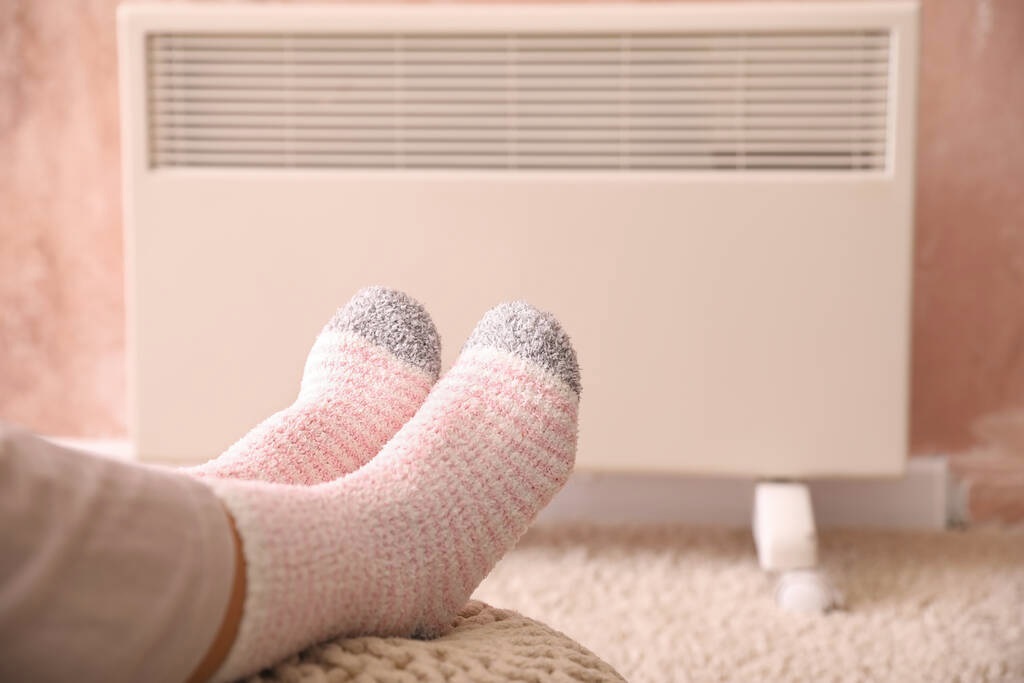
Ventless gas heaters require oxygen for the combustion of the fuel sources. The ventless gas heaters utilise the oxygen around the location of the heating unit to burn the fuel sources. During the combustion process, soot is produced that has to be vented back for easier dissipation.
During this process, heat is also vented back. Similarly, the combustion process leads to the production of carbon monoxide, carbon dioxide, nitrogen oxides, and water vapour. These gases, especially carbon monoxide, are poisonous and may cause death, among other adverse health problems.
The presence of good ventilation may mitigate the effects meaning that a poorly ventilated house is the worst place to have a ventless wall heater. Ventless gas heaters burn more efficiently, almost 99% efficient hence most people have always preferred them.
Other people have opted for installing an air vent outside, but ventless gas heaters do not need such vents; thus, they do not utilise them. This is because the ventless gas heater vents the heat produced during combustion back into the room to facilitate an effective heating system.
Do Ventless Gas Heaters Create Moisture?
The keyword for ventless gas heater system is ventless. This is the cause of all your moisture problems in the house. Natural gas is primarily composed of water, up to 80%. Now, if this water does not have the correct means of escaping, what do you suppose will happen? The answer is straightforward, it will, by all means, find its way back into your house, thus exposing you to severe problems.
The term ventless does not necessarily mean that it has no vent at all. In a real sense, the ventless gas heaters do not have vent pipes to direct all the moisture produced outside the house. The ventless gas heaters thus end up venting back into your house. That becomes the source of all the condensation you experience in your home. Well, if you are wondering where the moisture comes from, we’ve got you covered.
So, this is what happens. Ventless gas heaters use the oxygen in your house to facilitate burning the fuel sources. The combustion process is a series of various reactions that lead to the production of (CO) carbon monoxide, carbon dioxide (CO2), nitrogen oxides (NOx), and water vapour (H2O). There it is – elementary chemistry! Most fuel sources are made of carbon.
The combustion process involves the burning of carbon using oxygen. Thus the oxygen reacts with the carbon to produce carbon dioxide and water (Oxygen + Carbon = Carbon Dioxide + Water). Is there a way that you can stop this? Sadly, no, unless you shift to using vented gas heaters. The truth is that the more efficient the combustion process is, the more water vapour is produced, and the more you are likely to experience condensation problems on surfaces such as windows.
Is The Water Vapour A Pollutant?
Well, the simple answer is yes. The water vapour can be a pollutant, especially when its levels of accumulation are very high. If the water vapour accumulates in large quantities, it will likely increase the humidity level in the house. An increased humidity level in the home will translate to high rates of condensation on the window surfaces, the concrete walls, etc.
Such high levels of condensation would most probably encourage the growth of mould or mildew in your house. These growths are known to induce health issues such as asthma, allergies, etc., which will endanger you, family members, or even your pets.
The amount of water vapour produced depends on how often you use your ventless gas heater. A ventless gas heater with a 30,000 Btu/hour is highly likely to produce close to three gallons of water per hour. Now, suppose you use it more frequently; it may produce about seven gallons of water in a day.
Resolving A Ventless Gas Heater Moisture Problem
From the above information, it appears that once you choose to use the ventless heater system, you are highly likely to experience the moisture problem in one way or another. There is no easier way of preventing water vapor production unless you decide to stop using the ventless gas heater.
Using Other Heating Systems
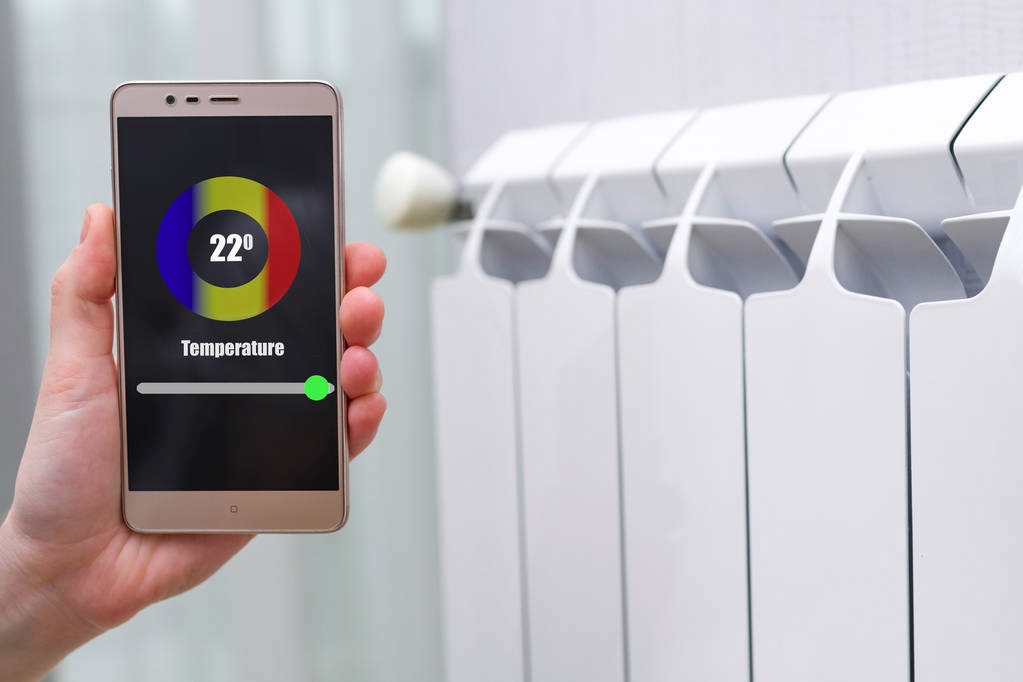
The first line of action in avoiding the moisture problem is using other heating options. Ventless gas heaters may be more economical and cost-effective than other heating options. However, the other options may not have moisture problems. By other heating options, we mean the vented heating systems or power-generated heating systems such as electric gas heaters.
Adhering to the Manufacturer’s Instructions
Most ventless gas heater manufacturers provide their customers with recommendations on dealing with the moisture problems in the user manual. Now, most people tend to neglect the instructions in the user manual. If you are experiencing a moisture problem, it is high time that you start to pay more attention to the user manual.
In most user manuals, you will find that the manufacturers recommend opening windows and ventilators while using the ventless gas heaters. Others recommend against the use of ventless gas heaters for long periods, such as over four hours for a heating session, while others suggest that the ventless gas heaters should not be used as the primary heating option.
The big question is, are these recommendations practical? The best way to find out is by trying them out. This is why you should consider reacquainting yourself with your manufacturer’s user manual sooner rather than later.
Removing the Water Vapour
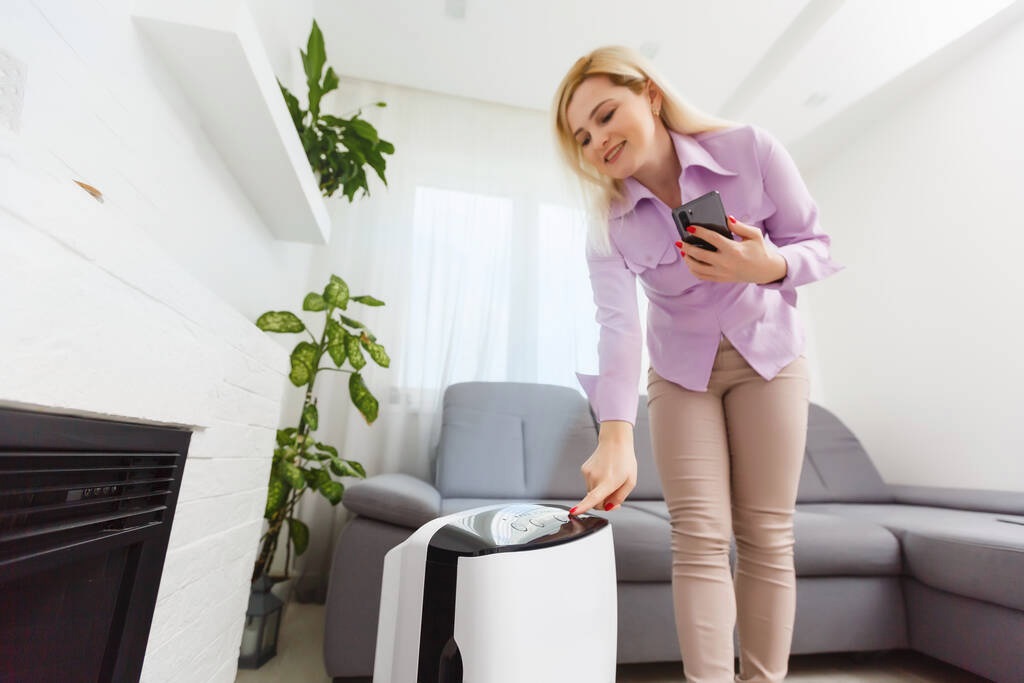
This is probably more than likely one of the better ways of dealing with the moisture problem. If you manage to remove the water vapour, you will stand a high chance of addressing the issues associated with it. This process involves the use of a dehumidifier installed next to your ventless gas heater.
How does a dehumidifier work? A humidifier has a fan that facilitates the drawing of warm air currents into the device’s coils. The inside of the dehumidifier has refrigerated coils, and as the warm currents pass over the coil, moisture is condensed. The condensation then remains inside the dehumidifier. The dehumidifier has a tank attached to it.
The accumulating condensation collects in the tank through water droplets. From the tank, cool air is supplied back into the room. There are various types of dehumidifiers. Most of them have metres for measuring the humidity levels of your house after the process of removing water vapour. You can also adjust the metre to the humidity percentage that you would like to have in the house.
Are Dehumidifiers 100% Effective And Safe?
Considering their primary role, which is to remove water vapour, dehumidifiers can be said to be about 99% effective. However, there are some side effects and limitations associated with the use of dehumidifiers. To begin with, the dehumidifiers remove water vapour, thus making the air dry.
This means that if you utilise a dehumidifier in places facing dry weather conditions, then you might land yourself in other problems. Similarly, it is not advisable to use a dehumidifier if you already have an electric heating system in your home. Moreover, while using a dehumidifier, it is possible to adjust it to the humidity levels that you desire in your house.
However, you should be keen and cautious with your adjustments since dry air could worsen health conditions like pneumonia. Similarly, if you are making your house so dry, you should not have a person suffering from eczema around. These patients tend to experience flare-ups in places with dry air. Too much dry air could also affect your hair and skin. Therefore, you need to keep your adjustments in check.
Additionally, ensure that you are well hydrated while using a dehumidifier in your home. You don’t want to risk suffocation. You should also not use a dehumidifier when you are suffering from a running nose or dry cough, as these conditions would worsen.
Choose The Heating Option Suitable For You
While ventless heaters have their advantages and disadvantages, it’s up to you to choose what heating option is the most practical for you and your family. Finding the right heater for your home can get a bit daunting, so do not hesitate to reach out to professional heating service providers if you need assistance.




